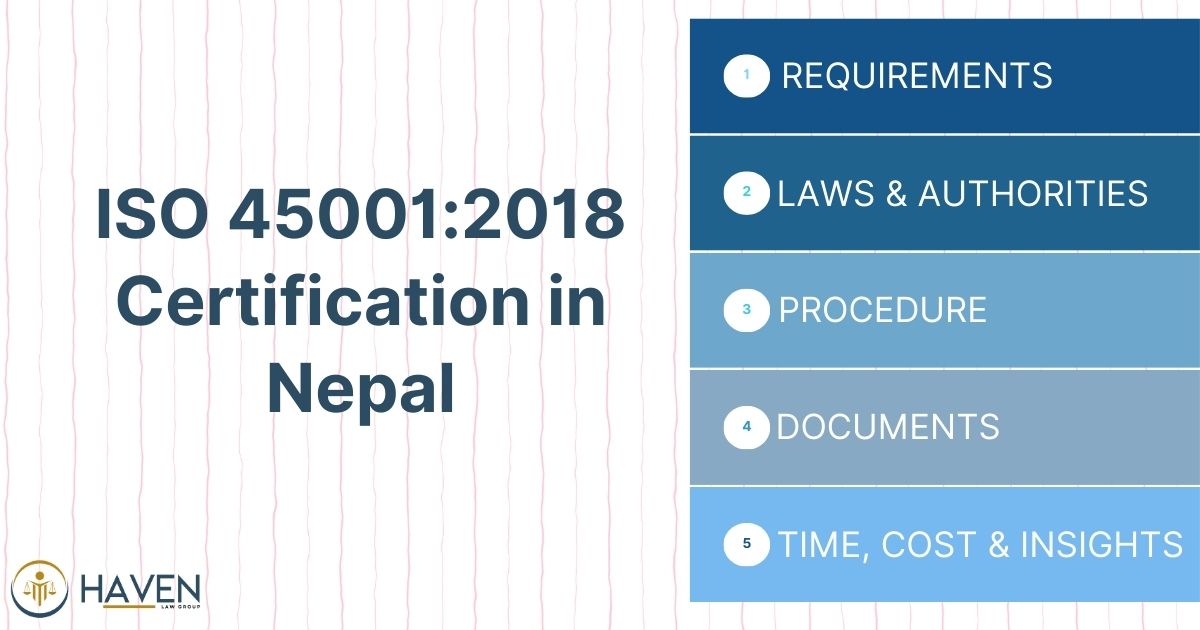Legal Framework for Property Division in Divorce
In Nepal, the legal framework for property division during divorce is primarily governed by the National Civil Code 2017 (Muluki Dewani Samhita 2074). This code outlines the rights and entitlements of both spouses regarding property distribution after the dissolution of marriage, including how a wife can claim her husband’s property. Understanding how a wife can claim her husband’s property is crucial for ensuring her rights during and after the divorce process. Wives should be aware of how a wife can claim her husband’s property to secure their rightful share in the marital assets.
Understanding how a wife can claim her husband’s property is crucial for ensuring her rights during and after the divorce process. The law aims to ensure a fair and equitable division of assets, considering various factors such as the duration of marriage, contributions of both parties, and the welfare of any children involved.
The process of how a wife can claim her husband’s property requires knowledge of legal rights and entitlements. It is essential for wives to understand the nuances of how a wife can claim her husband’s property, as this can significantly impact the divorce settlement.
A wife claiming her husband’s property is a significant aspect of this legal framework, especially regarding the phrase: ‘Wife Claim Husband’s Property.’ This phrase encapsulates the essence of a wife’s rights in the property division process and highlights the legal provisions allowing her to claim her husband’s property. This understanding is vital for navigating the complexities of property claims in divorce, emphasizing the importance of knowing how a wife can claim her husband’s property effectively.
Understanding how a wife can claim her husband’s property also includes recognizing the impact of financial and non-financial contributions made during the marriage. The rights associated with how a wife can claim her husband’s property are crucial for establishing a fair separation.
A wife can claim her husband’s property under various legal provisions that safeguard her rights, especially when considering the complexities of divorce. This includes the financial contributions made by the wife during the marriage, which can strengthen her claim to her husband’s property. In this context, the phrase ‘Wife Claim Husband’s Property’ is not just a legal term; it reflects the rights and entitlements that a wife must assert to ensure justice in property distribution.
Wife’s Legal Share in Nepal after Divorce
For example, if the husband has acquired significant assets during the marriage, the wife can claim her rightful share of these properties as part of the divorce settlement. This is an essential part of how a wife can claim her husband’s property, which is often a point of contention during separation. It is vital for a wife to understand how to assert her claim regarding her husband’s property.
Awareness of how a wife can claim her husband’s property enables her to navigate the legal landscape more effectively, asserting her rights confidently and clearly.
Moreover, the wife has a strong legal basis for claiming her husband’s property even if it is solely registered in his name, as long as she can demonstrate her contribution to the property’s acquisition. Thus, knowing how a wife can claim her husband’s property is vital for protecting her interests during divorce proceedings and ensuring equitable treatment.
Moreover, understanding the legal criteria surrounding how a wife can claim her husband’s property can help guide her actions during and after divorce proceedings.
It is important for a wife to understand the legal implications of claiming her husband’s property, as this knowledge can significantly impact the divorce outcome. The more informed she is, the better she can navigate the emotional and legal challenges inherent in property division.
According to the National Civil Code 2017, a wife is entitled to an equal share of the couple’s jointly acquired property after divorce. This includes assets accumulated during the marriage through the efforts of both spouses, underlining the principle of how a wife can claim her husband’s property.
Understanding the phrase ‘Wife Claim Husband’s Property’ is integral to recognizing her legal rights in this process, further emphasizing how a wife can claim her husband’s property through informed action.
Additionally, in instances of marital discord, a wife should be proactive in asserting her rights to claim her husband’s property, as this can affect her future financial stability.
In this context, the overall understanding of how a wife can claim her husband’s property forms the foundation for more equitable divorce settlements.
The law recognizes the wife’s contributions, whether financial or non-financial, in the acquisition and maintenance of marital property. In cases where the property is solely registered in the husband’s name, the wife can still claim her rightful share, including her husband’s property, if she can prove her contributions to its acquisition or enhancement. This reinforces the importance of how a wife can claim her husband’s property through valid claims.
Ultimately, having a clear grasp of how a wife can claim her husband’s property allows her to advocate effectively, ensuring that her rights are not overlooked during the separation process. Knowledge of how a wife can claim her husband’s property is empowering for many women facing divorce.
It is crucial for wives to gather all necessary documentation and evidence to support their claims regarding how a wife can claim her husband’s property during divorce proceedings.
This provision is essential for protecting the rights of a wife during the divorce settlement, ensuring she can effectively claim her husband’s property as per the legal guidelines. Understanding the phrase ‘Wife Claim Husband’s Property’ is integral to recognizing her legal rights in this process.
Wives should also seek legal advice to fortify their understanding of how a wife can claim her husband’s property and navigate potential disputes.
The phrase ‘Wife Claim Husband’s Property’ serves as a reminder of the legal rights that wives possess regarding their marital assets.
Overall, the ability to articulate how a wife can claim her husband’s property will empower wives during the divorce process and ensure their rights are upheld.
Establishing a clear strategy on how a wife can claim her husband’s property will facilitate more favorable outcomes.
Entitlement to Ancestral Property
The wife’s entitlement to ancestral property in Nepal is a complex issue. Generally, ancestral property is considered separate from marital property and is not subject to division during divorce.
However, there are exceptions to this rule. If the wife has made significant contributions to the maintenance or enhancement of ancestral property during the marriage, she may be entitled to a share. Additionally, if the couple has been living in the ancestral property and it has been their primary residence, the wife may have some rights to continue residing there, especially if there are children involved.
A wife’s claim to her husband’s property also encompasses aspects related to inheritance rights, underscoring the multifaceted nature of property rights in a marital context. Knowledge of how a wife can claim her husband’s property is essential for asserting her rights effectively.
Additionally, it is important to explore the situations in which a wife can claim husband’s property. Her contributions to the family and household during the marriage may strengthen her case for claiming her husband’s property.
Property Claims during Separation
During separation, a wife in Nepal can claim property rights, although the process may be more complicated than in a formal divorce. The National Civil Code 2017 recognizes the concept of judicial separation, which allows couples to live separately without formally ending their marriage.
Additionally, understanding the processes involved in how a wife can claim her husband’s property can prepare her for negotiations and potential legal battles that may arise during divorce proceedings.
In such cases, the wife can petition the court for maintenance and property rights. The court may order the husband to provide financial support and may also grant the wife temporary rights to certain properties, especially if she has custody of children or lacks independent means of support.
The following sections delve deeper into how a wife can claim husband’s property, outlining her rights in various scenarios.
Wife’s Property Rights in Nepal
In Nepal, a wife has several property rights, both during marriage and after divorce, which are crucial in understanding how a wife can claim her husband’s property:
- Right to equal share in jointly acquired property
- Right to maintenance and alimony
- Right to inherit property in case of husband’s death
- Right to claim share in husband’s earnings and assets acquired during marriage
- Right to retain her personal property (Stridhan)
- Right to claim compensation for domestic violence or cruelty
These rights are protected under various laws, including the National Civil Code 2017 and the Domestic Violence (Crime and Punishment) Act 2009.
Husband’s Ability to Deny Property Rights
Moreover, various legal clauses in the National Civil Code 2017 help articulate how a wife can claim husband’s property. These ensure that her rights are upheld even in challenging circumstances.
Wives must understand these rights to effectively navigate how a wife can claim her husband’s property.
In cases involving how a wife can claim her husband’s property, it is vital to differentiate between self-earned and jointly acquired property.
As such, understanding how a wife can claim her husband’s property is integral to asserting her rights effectively.
In Nepal, a husband cannot legally deny his wife’s property rights as established by law. The National Civil Code 2017 and other relevant legislation provide clear guidelines on property division and spousal rights.
Ultimately, the knowledge of how a wife can claim her husband’s property will help shape the negotiation strategies during divorce.
If a husband attempts to deny these rights, the wife can seek legal recourse through the courts. The law empowers judges to enforce property rights and impose penalties on those who attempt to circumvent legal obligations.
However, it’s important to note that property disputes can be complex, and the outcome may depend on various factors and evidence presented in court.
Wife’s Share in Self-Earned Property
In cases involving self-earned property, specific provisions determine how a wife can claim husband’s property, reflecting her rights in marital assets.
In summary, the legal framework provides a clear pathway for how a wife can claim husband’s property, ensuring her entitlements are respected and upheld during the divorce process.
Furthermore, a wife can claim husband’s property that has been commingled with marital assets, emphasizing her entitlement to a fair distribution of resources.
The wife’s entitlement to a share in the husband’s self-earned property depends on several factors. Generally, property acquired by the husband before marriage or through inheritance is considered separate property.
However, if the wife has contributed to the enhancement or maintenance of this property during the marriage, she may be entitled to a share. Additionally, if the self-earned property has been commingled with marital assets or used for the benefit of the family, it may be subject to division.
The court considers the duration of the marriage, the wife’s contributions (financial and non-financial), and the overall financial situation of both parties when making decisions about self-earned property.
Wife’s Entitlement to Husband’s Land
In Nepal, a wife’s entitlement to her husband’s land after divorce depends on the nature and origin of the land. If the land was acquired during the marriage through joint efforts, the wife is entitled to an equal share.
For ancestral land or land owned by the husband before marriage, the wife’s claim may be limited. However, if she has contributed to the land’s development or if it has been the family’s primary residence, she may have some rights. The court considers factors such as the duration of marriage, the wife’s contributions, and the welfare of any children when determining land entitlements.
Property Claims in Childless Marriages
In childless marriages, a wife can still claim property rights after divorce in Nepal. The absence of children does not negate the wife’s entitlement to her share of marital property.
The National Civil Code 2017 recognizes the contributions of both spouses to the marriage, regardless of whether they have children. The court will consider factors such as the duration of the marriage, the financial and non-financial contributions of both parties, and their respective financial situations when dividing property.
However, the absence of children may influence decisions regarding the family home or certain assets typically allocated with children’s welfare in mind.
Settlement of Property Disputes in Court
Property disputes during divorce in Nepal are settled through the following process:
In summary, familiarity with the phrase ‘Wife Claim Husband’s Property’ reinforces the importance of legal awareness for wives facing divorce, as it directly relates to their entitlements and claims on marital assets.
- Filing of divorce petition along with property claims
- Submission of evidence and documentation of assets
- Court-ordered property valuation, if necessary
- Mediation attempts to reach an amicable settlement
- Court hearings to examine evidence and hear arguments
- Judicial decision on property division
- Issuance of court order detailing property distribution
- Enforcement of the court order, if necessary
The court aims to ensure a fair and equitable division of property, considering all relevant factors and evidence presented by both parties.
Legal Perspective on Property Division
The law in Nepal does not inherently favor either the wife or the husband in property division during divorce. The National Civil Code 2017 emphasizes equality and fairness in the distribution of marital assets.
Judges are required to consider various factors to ensure an equitable division, including:
- Duration of the marriage
- Contributions of each spouse to the acquisition and maintenance of property
- Financial situation of both parties
- Welfare of any children involved
- Any prenuptial agreements or prior arrangements
The court’s primary objective is to achieve a just and reasonable outcome that considers the unique circumstances of each case.
Alimony and Property Rights
In Nepal, alimony and property rights are interconnected but distinct aspects of divorce settlements. Alimony, also known as spousal support, is primarily focused on providing financial support to the economically weaker spouse after divorce.
Property rights, on the other hand, deal with the division of marital assets. While alimony itself does not typically include direct property rights, the court may consider property division when determining alimony amounts.
For instance, if a wife receives a significant share of property in the divorce settlement, it may affect the amount of alimony she is awarded. Conversely, if a wife receives little or no property, the court may award higher alimony to ensure her financial stability.
In the context of divorce in Nepal, the interplay between alimony and property rights is crucial. Alimony, aimed at supporting the financially disadvantaged spouse post-divorce, and property rights, governing the division of marital assets, are separate yet linked facets addressed by the court. While alimony itself may not directly include property entitlements, property division considerations can influence alimony determinations to ensure a fair and equitable resolution based on individual case circumstances.
Can a wife claim her husband’s property after divorce in Nepal?
Yes under Nepal’s Civil Code (Muluki Civil Code, 2017 / 2074 BS), a wife may claim jointly acquired property acquired during marriage. Separate, inherited or gifted property is generally excluded.
What is “jointly acquired property” in Nepal, and how is it divided?
Joint property refers to assets acquired during marriage through both spouses’ effort. Upon divorce, such assets are divided equitably (often equally), with courts considering contributions, duration of marriage, and financial capacity.
Can a wife claim her husband’s ancestral or inherited property after divorce?
Usually, no. Ancestral or inherited property is treated as separate property under law. The wife’s right to claim such property may arise only if she significantly contributed to its maintenance or transformed it into joint property.
What does “separate property” include, and why might a wife not get a share of it?
Separate property includes assets brought into marriage, gifts, inheritances, or properties earned individually. These are excluded from division because they did not arise from joint marital contribution.
What factors do courts in Nepal consider when deciding property claims in divorce?
Courts assess duration of marriage; financial & non-financial contributions (e.g. homemaking); whether property is joint or separate; existence of children; economic need; and any misconduct affecting property rights.
Is property partition automatic, or does the wife need to request it during divorce?
It’s not automatic. The wife must assert the claim for property share often via the court as part of divorce proceedings per Section 99 of the Civil Code. Delay or failure to claim may limit chances.








